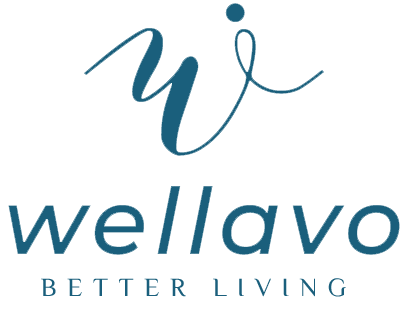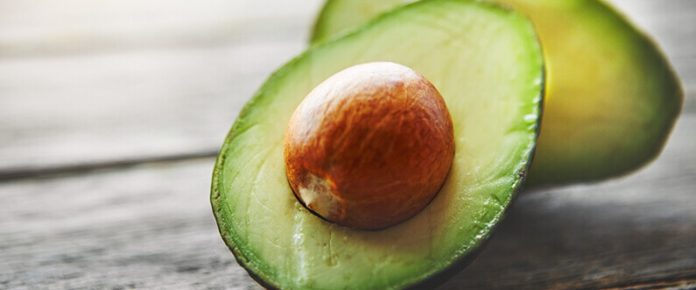Low-fat diets are a thing of the past, avocado toast is on everyone’s plate, and coconut oil is being added to coffee. A big change from the low-fat diet trend in the 90s, right? Contrary to the beliefs of the past, eating fat does not make you fat. But quality and type of fat is important for other aspects of your health like cholesterol and heart health. So what type of fat is best for the body?
Plant-based fats are superior to animal-based fats when it comes to your health. Plant-based fats have more monounsaturated and polyunsaturated fats whereas animal-based fats have more saturated fat. Monounsaturated fats protect the heart by reducing cholesterol; oils rich in monounsaturated fats also contain vitamin E, which is a powerful antioxidant. Polyunsaturated fats are found mostly in plant-based foods and contain omega-3 fatty acids, which have been proven to be beneficial for heart health. A study done by Harvard researchers found that higher intakes of plant-based fats and reduction of saturated fats decreased the risk of death by 16 percent. The study also showed that an increase in animal-based fats increased the risk of dying by 21 percent. Just that fact alone should make you switch to plant-based fats only!
So what are the healthiest plant-based fats for you to consume?
1. Avocados
Avocados contain both monounsaturated and polyunsaturated fats, but they are much higher in monounsaturated fats—15 g in a medium-sized avocado! The monounsaturated fats in avocados can help lower cholesterol and can even be beneficial for managing blood sugar. The good thing about avocados is that not only are they high in plant-based fats but also contain nutrients like fiber.
A delicious way to eat avocados is mashed up into guacamole, spread on toast to make avocado toast, or simply sprinkled with Himalayan pink and eaten with a spoon right out of the skin. You can also add it to sandwiches and tacos; it’s even great in smoothies!
2. Flaxseeds
Flaxseeds are tiny seeds that pack a big punch of healthy fats. They are one of the richest plant-based sources of alpha-linolenic acid, also known as ALA. ALA is important for brain health and keeping arteries healthy to prevent stroke. As a whole, the fat content of flaxseeds is helpful for reducing cardiovascular disease, providing anti-inflammatory effects, and provide a decreased risk of cancer.
Because flaxseeds are so tiny, you can add them to almost anything! They can be consumed whole as a seed or in ground powder form. It’s easiest to consume when they are added to smoothies, but you can also sprinkle them on yogurt, fruits and vegetables, your favorite cereal, or put them in homemade energy bars!
3. Extra-Virgin Olive Oil (EVOO)
This plant oil is loaded with health benefits. Popular in the Mediterranean diet, olive oil is high in monounsaturated fat, oleic acid specifically. This type of monounsaturated fat has anti-cancer benefits when consumed regularly. EVOO also has strong anti-inflammatory properties, which helps reduce overall inflammation in the body—similar to taking ibuprofen! That’s food as medicine right there.
Olive oil is easy to incorporate into your daily diet. Use it in homemade salad dressings, pestos, in cooking to sauté vegetables, or drizzle over a plate of freshly made pasta. It’s a versatile oil that you can use in many ways, whether you’re a vegan, vegetarian, or focusing on eating more plant-based fats.
4. Chia Seeds
Even smaller than a flaxseed, the chia seed is also a nutritional powerhouse—specifically for healthy fats! They provide 8.6 g of total fat in just one ounce (or two tablespoons) of seeds; 6.5 g of that fat content is polyunsaturated fat. As previously noted, polyunsaturated fats are helpful for preventing cardiovascular disease. The other cool thing about chia seeds is that they are loaded with fiber, so they help keep your digestive system regular and healthy.
Chia seeds can be added to smoothies, made in to a chia pudding, or sprinkled on oatmeal. They are also easy to incorporate into baking. An easy way to consume chia seeds is to shake them up in your favorite liquid and drink it as chia seed lemonade, throw in your green juice, or even add to plain water.
5. Walnuts
Have you ever looked at a walnut? It looks similar to a brain. Since your brain is mostly fat, and walnuts are high in fat, it makes sense that they would be beneficial for brain health! Walnuts have high anti-inflammatory properties because of their omega-3 content. Walnuts contain polyunsaturated fatty acids which are helpful for reducing cytokines in the body, which promote inflammatory processes. The more you can combat cytokines, the less inflammation there will be! Walnuts are the epitome of a healthy fat for the body.
Snack on walnuts, add them to pestos, throw a few in your smoothie, make walnut butter, mix with other nuts for a homemade trail mix—the options are endless!
6. Cacao Nibs
Cacao nibs are the raw form of cocoa, aka chocolate! Who wouldn’t jump for joy at the fact that chocolate is a healthy fat? Keep in mind that cacao nibs aren’t what you get with a milk chocolate bar. But cacao nibs provide a healthy dose of plant-based fat. Cacao nibs contain 12 g of fat in only one ounce! With a mix of saturated and monounsaturated fat, cacao nibs are high in antioxidants and also magnesium!
These little nibs can be added to smoothies, sprinkled on cereal or yogurt, or added to trail mix. They are pretty hard in texture so if you don’t like that, you can purchase cacao in powder form for easier consumption.
Now that you know about six plant-based healthy fat sources, which ones are you going to start incorporating into your diet today for your overall health and well-being?


